SUMMARY
This is AI generated summarization, which may have errors. For context, always refer to the full article.
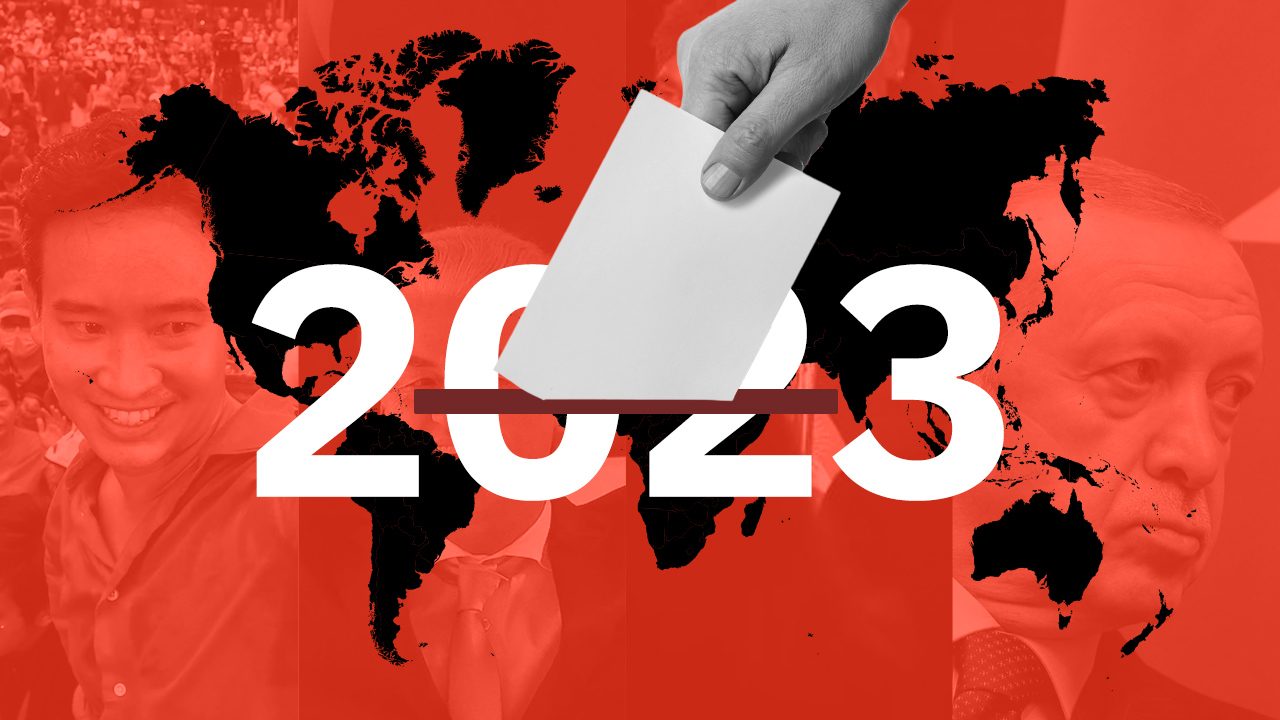
MANILA, Philippines – The decline of democracy set the stage for many elections around the world the past year, and the outcome in many of these polls are worrying in the face of rising authoritarianism.
Most notable were the shift to the far-right in Argentina, the Netherlands’ new anti-Islam prime minister, the father-to-son leadership transfer in Cambodia, and the new lease on the presidency of strongman Recep Tayyip Erdogan in Turkey.
In Poland, an outlier in this roster, the new prime minister promises to fix the rule of law that took a beating during the eight-year conservative rule.
Many may have failed in their quest for change this year, but lessons learned and allies formed can be useful in fighting for a better tomorrow in some countries.
In Thailand, where the youth movement was successful in the parliamentary elections but fell short in installing its leader, failed prime ministerial bet 42-year-old Pita Limjaroenrat said that he will continue to work with “fellow citizens with all [his] strength to drive the change we hope for strength to drive the change we hope for.”
What are the crucial elections and political developments in 2023?
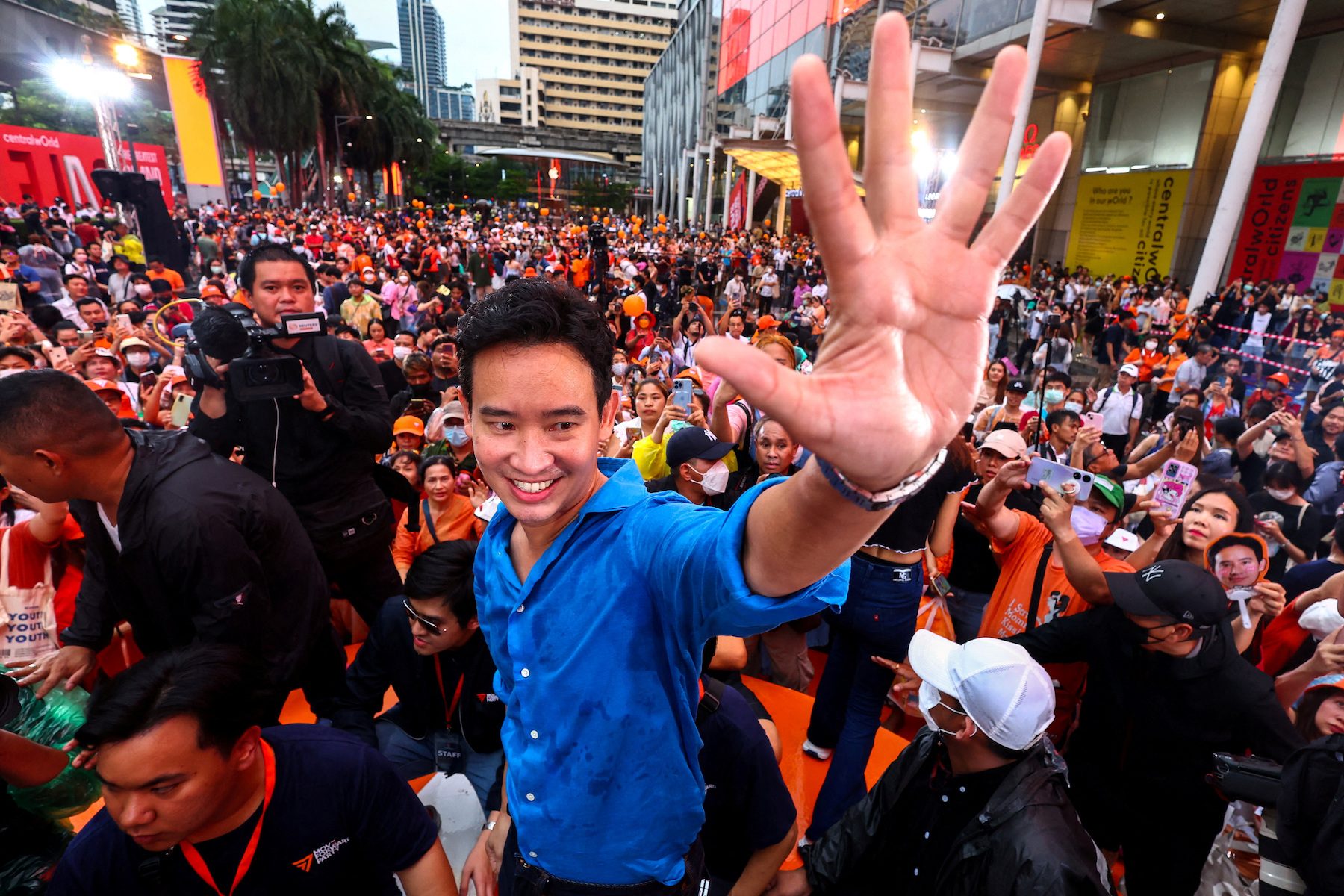
Thailand: Almost, but not quite
Thailand almost succeeded in having a government that was everything that former leaderships were not: Young, progressive, and far from being royalist or militarist. But ultimately, the political status quo prevailed.
The Move Forward party, a progressive youth-led faction, crushed military-backed parties in the 2023 elections, winning 151 or almost 38% out of the 500 seats in the parliament.
Move Forward presented an “ambitious reform agenda” that challenged the conservative political establishment. Most of those who ran under their banner were young Thais who were at the forefront of pro-democracy protests in 2020, one of the biggest movements since the military seized power in 2014. The participants, who flashed three-finger salutes inspired by the Hunger Games series, called for the resignation of then-prime minister Prayut Chan-O-Cha.
An alliance led by Move Forward hoped to draft a new constitution for Thailand, end monopolies, and even allow same-sex marriage, among others. The party’s leader and then-prime minister hopeful Pita Limjaroenrat, promised that his government would be “anti- dictator-backed, military-backed parties for sure.”
But all these were blocked when Pita failed to secure enough votes in the parliament to become prime minister. His bid was rejected by conservative politicians reportedly influenced by the military.
Instead, the parliament elected political newcomer and businessman Srettha Thavisin. He is part of the Pheu Thai Party, founded by former prime minister Thaksin Shinawatra who went into self-exile in 2008 after facing charges over corruption. Thaksin recently went back to Thailand after Thai King Maha Vajiralongkorn commuted his prison sentence to one year.
Pita resigned as leader of Move Forward and is currently suspended from parliament as he faces a case that questioned his eligibility to run for office over his ownership of shares in a media company.
Move Forward was also out of the alliance that formed the new government.

Cambodia: From father to son
Cambodia’s Prime Minister Hun Sen finally stepped down from power after almost four decades. The catch? He passed the baton to his eldest son, Hun Manet, who became prime minister in August 2023.
The elder Hun’s Cambodian People’s Party (CPP) won 120 of the 125 legislative seats, obtaining at least 6.3 million votes in the general elections in July 2023. The landslide victory was expected in the aftermath of Hun’s massive crackdown on opponents and critics throughout his 38 years in power.
Critics questioned the credibility of the polls due to Hun’s repressive actions against opponents. The Candlelight Party, the main opposition body in Cambodia, was disqualified from running after it submitted a photocopy of a registration form instead of an original copy.
Hun Sen also ordered the shutdown of independent news outlet Voice of Democracy in early 2023 for attacking him and his son. Leading opposition figure Kem Sokha, meanwhile, was sentenced to 27 years of house arrest in March after being found guilty of treason.
The younger Hun’s plans for Cambodia remain unclear. But advocates fear that the military officer, who attended West Point in the United States, will continue his father’s repressive policies.
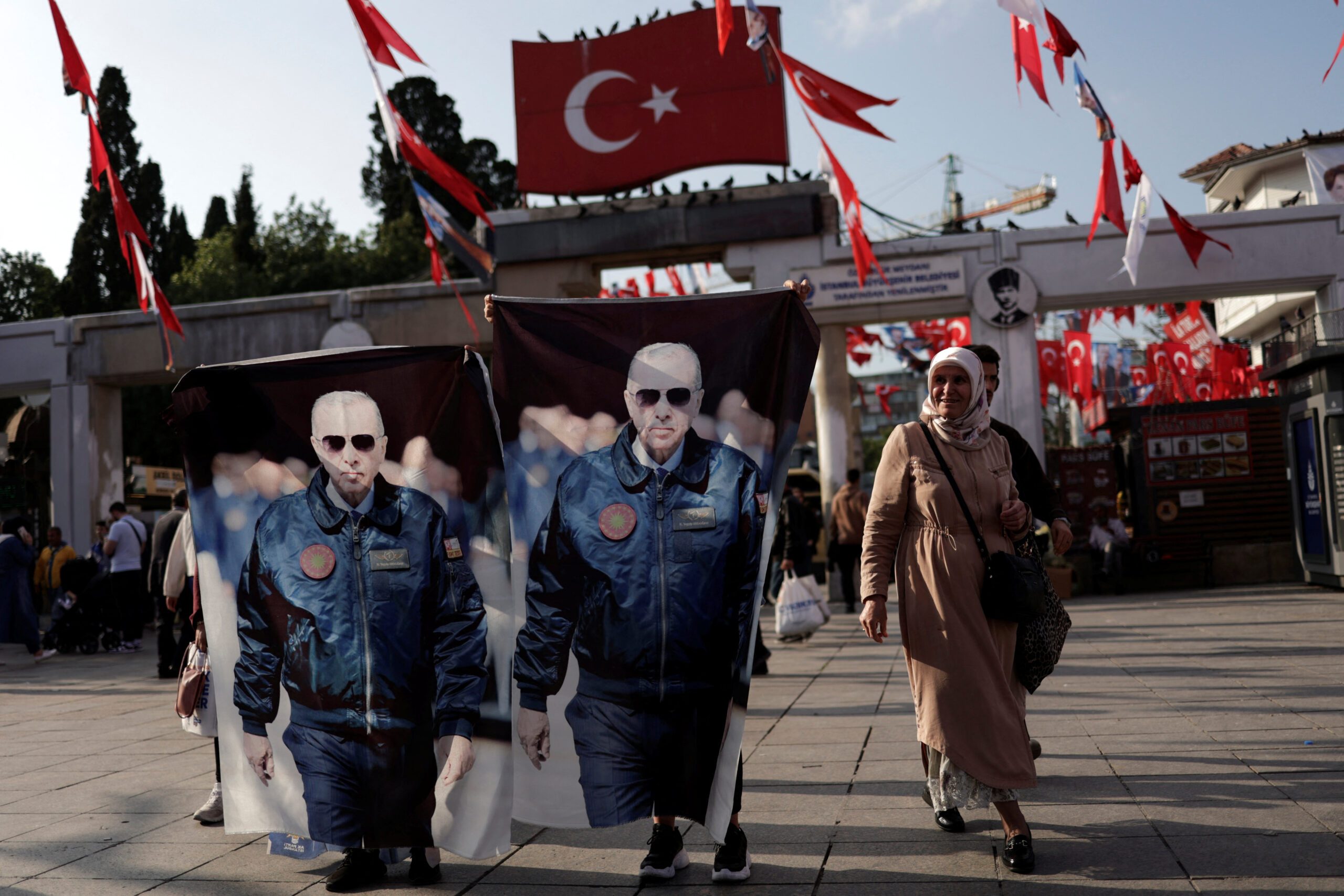
Turkey: More years under Erdogan
Recep Tayyip Erdogan extended his two-decade rule over Turkey after winning the May 2023 elections. Erdogan’s victory came as his popularity slipped in recent years due to the high cost of living and an economic crisis.
The election results showed a “deeply divided nation,” with Erdogan getting 51.1% of the votes against the 47.9% obtained by Kemal Kilicdaroglu, who called the polls “the most unfair… in years.”
Erdogan is set to lead for five more years. He was first elected as president in 2014, the first time citizens directly voted for a president as a result of a 2007 referendum. In prior elections, Turkish presidents were elected by the parliament. Prior to becoming president, Erdogan served as prime minister since March 2003.
Erdogan’s rule, already spanning 20 years, is marked by authoritarian policies that undermine democracy. His government has cracked down on protest movements, especially in the aftermath of an attempted coup against Erdogan in 2016.
The state of emergency, triggered by the botched attempt, was “used to severely and arbitrarily curtail the human rights of a very large number of people.” The United Nations documented at least 160,000 arrests, with reports of torture, during the 18-month period.
In 2018, Erdogan was reelected and granted more powers due to a 2017 referendum, including authority to appoint judiciary and other officials, as well as junking the position of prime minister. This left the president “in full and sole charge of the government.”
Fast forward to 2023, Turkey is facing an economic crisis that Erdogan will have to face during his renewed term. In a Reuters report, former Turkish central bank governor Bulent Gultekin said that if he “continues his economic policy, it will come to a complete crash at one point.”
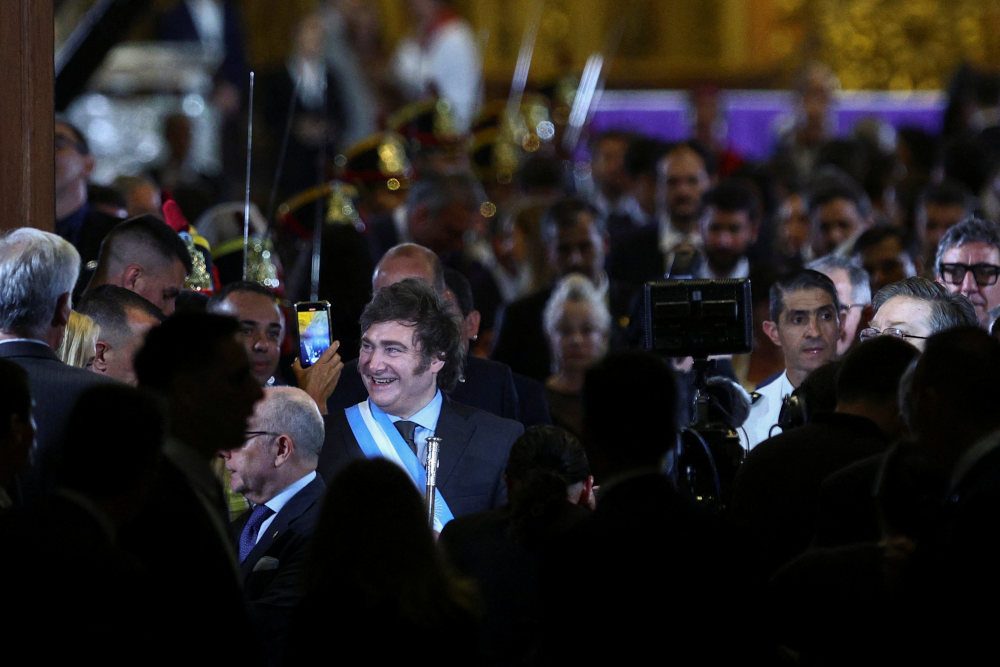
Argentina: Crackdown on activists
Argentinians rejected the usual and chose a new leader in the form of an economist who once called Pope Francis a “son-of-a-bitch preaching communism” and an “imbecile who defends social justice.”
Javier Milei was elected in November 2023 elections, obtaining 56% of the votes against Peronist economy minister Sergio Massa. A Peronist subscribes to the ideologies and policies under the former Argentinian Juan Peron. Massa’s defeat is attributed to the “country’s worst economic crisis in two decades while he has been at the helm,” according to a Reuters report.
To address the crisis, Milei plans to shut down the central bank and slash spending, among other actions considered as “shock therapy” that worry stakeholders as it could lead more people into poverty. On December 10, Milei said that there is “no alternative to a shock adjustment.”
“We neither seek nor desire the tough decisions that will have to be taken in the coming weeks, but we have been left with no choice,” he said during his first speech as president.
In response to the possible backlash due to Milei’s economic plans, the Argentinian government announced harsh policies that seek to crackdown on protests across the country. State agents are ordered to dismantle protests and arrest activities. “Let them know that if the streets are taken, there will be consequences,” Milei’s minister of security Patricia Bullrich said in a press conference, according to a report by Spanish-language newspaper El País.
Milei, considered a far-right president, is also staunchly anti-abortion. He vowed to hold a referendum on the law that legalized abortion in Argentina in 2021.
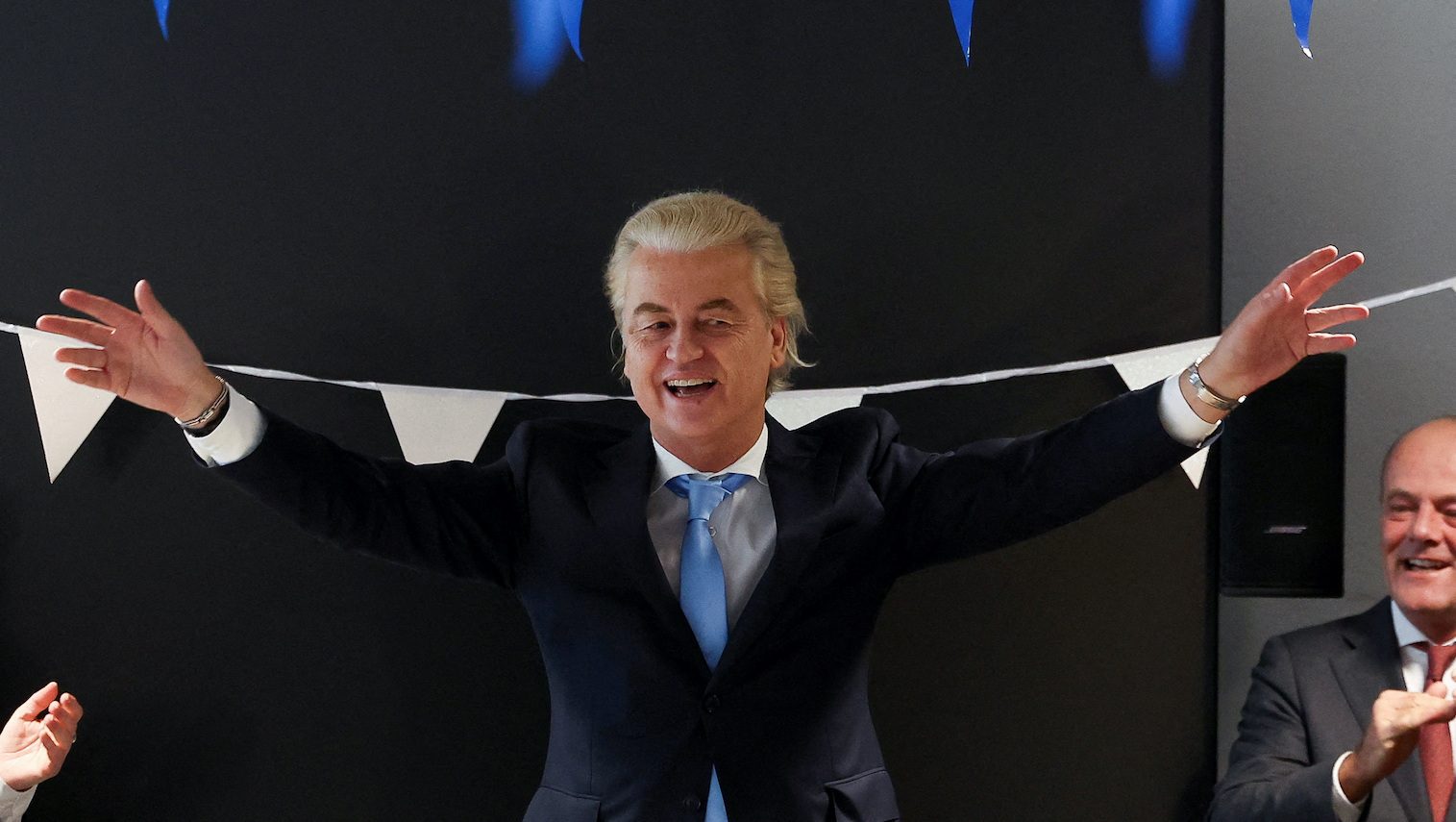
Netherlands: Going far right
Netherlands – the country that houses the city of peace and justice – now has a vocal anti-Islam prime minister. Far-right populist Geert Wilders was elected prime minister after his Freedom Party won 37 seats out of 150 in the Dutch parliament.
Wilder’s 2023 victory came after his 2017 defeat against prime minister Mark Rutte of the conservative People’s Party for Freedom and Democracy (VVD). Rutte was first elected in 2014 and is the longest serving prime minister in Dutch history. He resigned in July 2023 after failing to handle a crisis involving migration policy.
Wilder, during the 2017 elections, had a party manifesto that vowed to shut down mosques, ban the selling of Qur’an, and reject Muslim immigrants. He also tweeted in 2017 that “less Islam means more freedom.”
At least 6% of the Dutch population aged 15 and above subscribe to Islam as of 2022, according to Statistics Netherlands.
Wilder has gone to court over his anti-Islam statements. In 2016, he was found guilty of discrimination in relation to comments he made about decreasing the population of Moroccans in the Netherlands. He was acquitted of similar charges in 2011.

Poland: Mending the rule of law
Poland enters a new era after almost a decade of conservative rule, with former European Council president Donald Tusk taking the reins again as prime minister.
Tusk was elected as prime minister as opposition parties won a majority of the seats in the Polish parliamentary elections in October 2023.
The coalition unseated the right-wing populist Law and Justice that introduced restrictive policies during its eight-year rule, including against LGBT and reproductive rights and other democratic backsliding.
Tusk, who served as Polish prime minister from 2007 to 2014, said that the country will fix its rule of law, support Ukraine and mend its ties with the European Union. “Poland is back in Europe,” he told journalists. – Rappler.com
Add a comment
How does this make you feel?













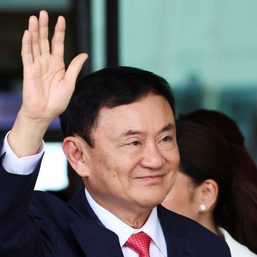








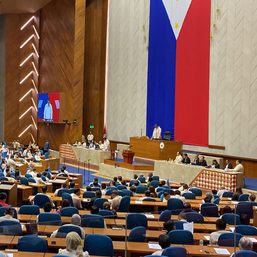

There are no comments yet. Add your comment to start the conversation.